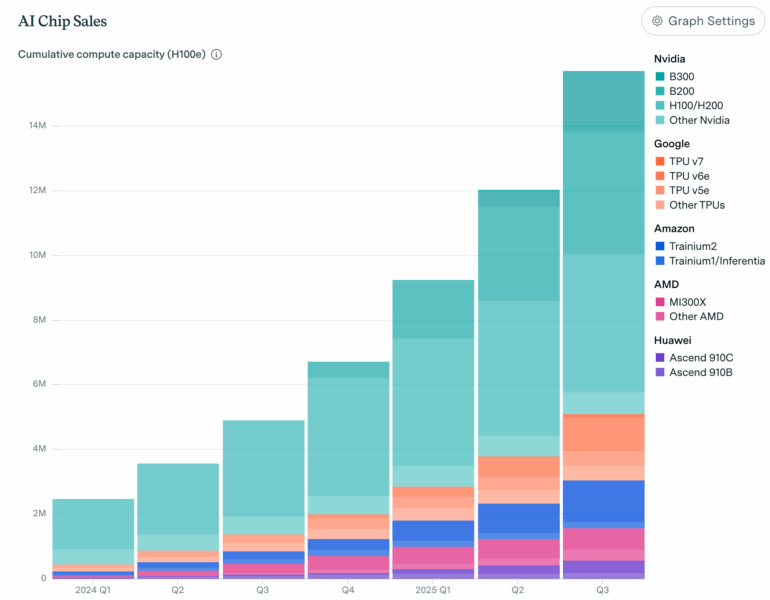Epoch AI has released a comprehensive database of AI chip sales showing that global computing capacity now exceeds 15 million H100 equivalents. This metric compares the performance of various chips to Nvidia's H100 processor. The data, published on January 8, 2026, reveals that Nvidia's new B300 chip now generates the majority of the company's AI revenue, while the older H100 has dropped below ten percent. The analysis covers chips from Nvidia, Google, Amazon, AMD, and Huawei.

Epoch AI estimates this hardware collectively requires over 10 gigawatts of power - roughly twice what New York City consumes. The figures are based on financial reports and analyst estimates, since exact sales numbers are often not disclosed directly. The dataset is freely available and aims to bring transparency to computing capacity and energy consumption.


